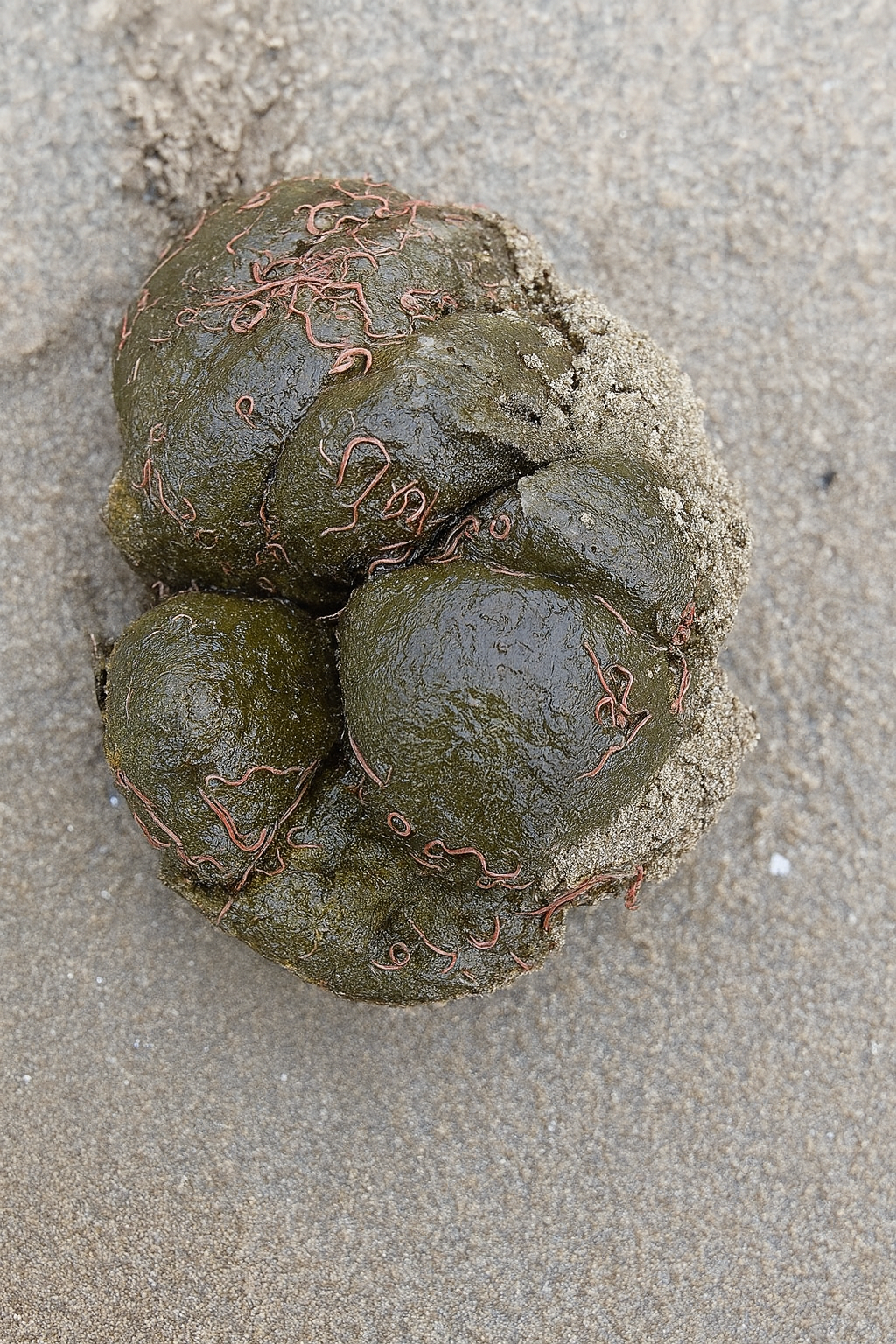The life cycle of small and large red bloodworms is the same outside the donkey. Red bloodworm eggs end up on the pasture through the manure. Within a few days, a larva hatches from the egg and develops on the pasture into an infectious larva. This development into a larva only takes place on the pasture and is optimal in warm, humid summer weather. Donkeys kept on a sand paddock or in a stable will not become infected with red bloodworms, as the conditions for the development of infectious larvae are unfavorable there.
While grazing, the donkey ingests infectious larvae. Under cool, moist conditions, infectious larvae can survive on the pasture for up to 6 months. In dry and warm weather, the lifespan of a larva on the ground is much shorter. To increase their chances of being ingested, the larvae move up the blades of grass in wet weather, where they are then eaten by the donkey. After being ingested, the larva develops in the donkey’s abdomen into an adult worm. The development inside the donkey differs between large and small red bloodworms.
In manure research, we look for red bloodworm eggs. Since the eggs of small and large strongyles cannot be distinguished from each other, the total number of strongyle eggs is reported on the results form. Based on the egg count, we advise you whether or not to treat your donkey.
Small red bloodworms are also known as small strongyles or Cyathostomins. In total, about 50 species of small red bloodworms have been described, of which 10–12 are commonly found.
Adult small red bloodworms are found in the large intestine and cecum of donkeys of all ages, except for newborn foals. When infectious larvae are ingested by the donkey, they immediately penetrate the intestinal mucosa upon arrival in the large intestine. After a development period of at least 6 weeks (the pre-patent period) in both the intestinal lining and content, adult worms can be found in the intestines. These worms lay eggs, which are then excreted in the manure.
Larvae can also wander in the intestinal wall for several months. Because they move continuously, the donkey’s immune system often cannot handle these intruders. The result is inflammation of the intestinal wall, which occurs especially in young animals.
The larvae of the small red bloodworm have the unique ability to go into a type of dormancy. During this period, they become encapsulated in the intestinal wall. Whether a larva enters ‘dormancy’ or develops directly into an adult worm depends on many factors, including age, season, and the donkey’s resistance.
In this way, larvae can remain encapsulated for up to 3 years, waiting for an opportunity to develop into adult worms. If there is a signal from the intestinal lumen that there are no or too few adult worms, some larvae move from the intestinal wall into the lumen. There, they quickly develop into adult worms and start laying eggs.
Sometimes, after deworming for example, the migration from the intestinal wall can be so massive that large portions of the mucous membrane of the large intestine are destroyed. This is caused by the larvae moving from the intestinal wall into the intestinal lumen. Such donkeys become ill and develop severe diarrhea, which often has a fatal outcome.
In these donkeys, no eggs will be found in the manure, as the adult worms have been killed by the previous treatment, while the young larvae are not yet able to produce eggs. Clearly, such situations must be avoided.
If acute diarrhea caused by worms occurs, we strongly recommend contacting your veterinarian immediately.
Dewormers containing ivermectin are the first choice for treating red bloodworm infections. Since donkeys up to 5–6 years old are especially sensitive to encysted larvae, we advise treating animals of this age that have grazed infected pastures in autumn preventively with moxidectin in November–December. Other dewormers are not effective against the encysted stages. It is also useful to combine this treatment with a product against tapeworms and bot fly larvae.
If a manure test shows that your donkey is infected with red bloodworms, we will provide you with a personal treatment recommendation. This way, your donkey’s health comes first, and you avoid unnecessary deworming. Please feel free to contact our team if you have any questions; we are happy to help you further.
